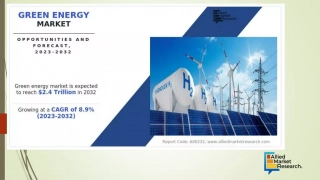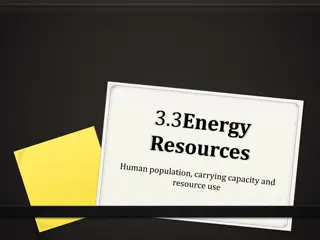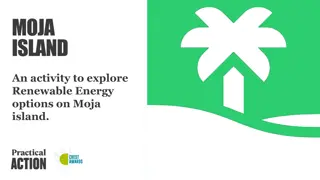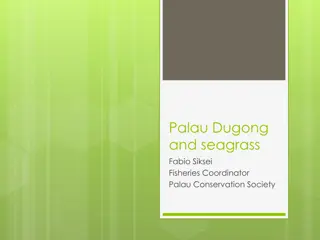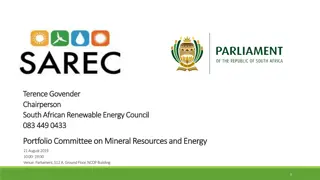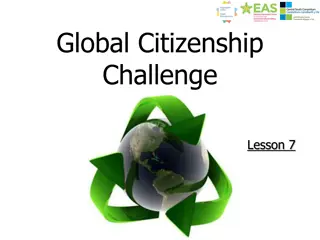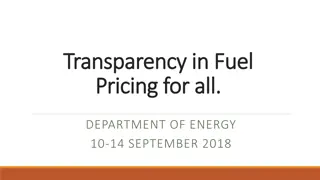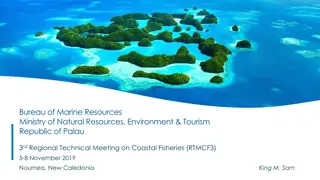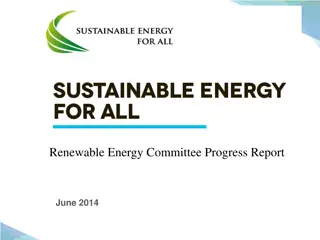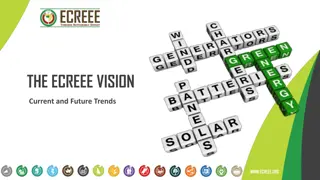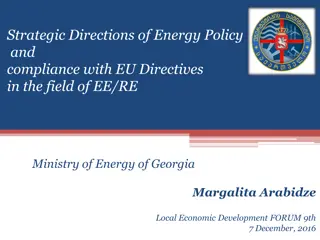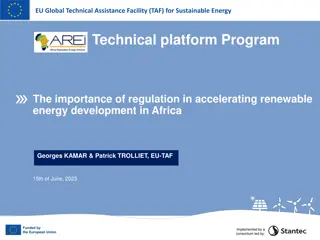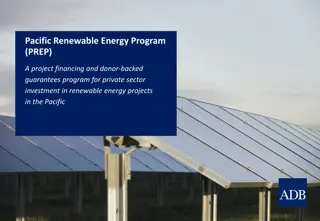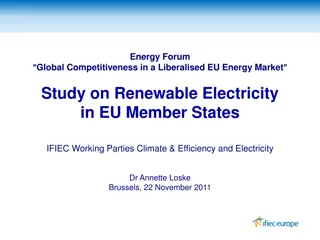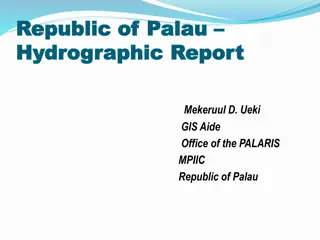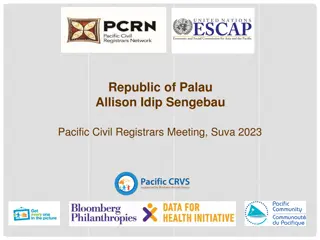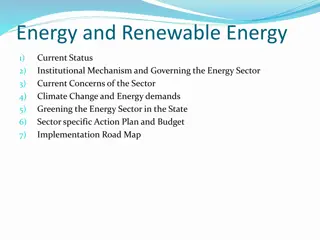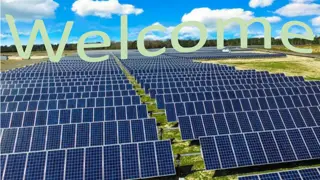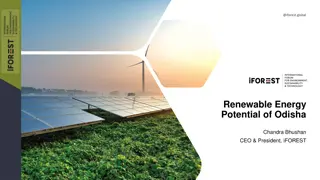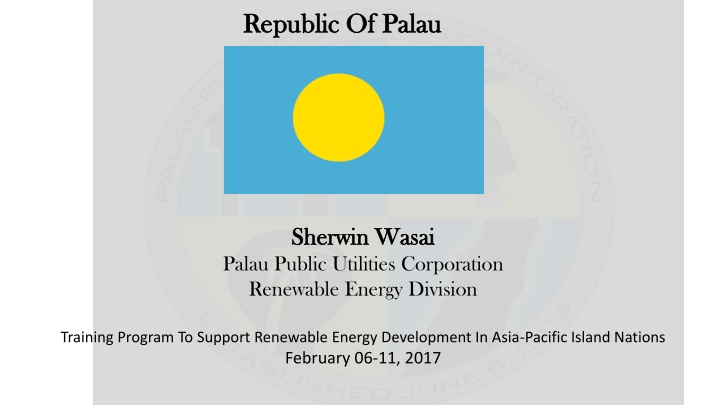
Renewable Energy Development in Palau: Policies, Projects, and Challenges
Palau has made significant strides in promoting renewable energy through policies, projects, and partnerships. However, challenges such as capacity building, inconsistent regulations, and lack of incentives persist. Workshop aims to address these issues
Download Presentation

Please find below an Image/Link to download the presentation.
The content on the website is provided AS IS for your information and personal use only. It may not be sold, licensed, or shared on other websites without obtaining consent from the author. If you encounter any issues during the download, it is possible that the publisher has removed the file from their server.
You are allowed to download the files provided on this website for personal or commercial use, subject to the condition that they are used lawfully. All files are the property of their respective owners.
The content on the website is provided AS IS for your information and personal use only. It may not be sold, licensed, or shared on other websites without obtaining consent from the author.
E N D
Presentation Transcript
Republic Of Palau Republic Of Palau Sherwin Sherwin Wasai Palau Public Utilities Corporation Renewable Energy Division Wasai Training Program To Support Renewable Energy Development In Asia-Pacific Island Nations February 06-11, 2017
Policies/Regulations to Support Energy Transition Palau National Energy Policy (Established August 2010, 30%reduction on overall national energy consumption, 20% RE penetration by 2020) Palau Net Metering (Established May 2011) PPUC Guidelines, standards and regulations for R.E. generation systems connecting to the central grid. (Established May 2012) Palau Energy Act (Established January 2016) Two Grid stability study (2012) Republic of Palau Strategic Action Plan (Established October 2009)
Renewable Energy Projects: Constructed or In Process Capitol Building Solar. 100 kW Grid connect system. Partner REP 5 funded by EU Commissioned Dec. 2009 Palau National Airport Solar. 225kW grid connect system. Funded by Japan Government commissioned Oct. 2011 Palau Track and Field Solar. 150 kW grid connect system. partnership with NorthRep, SPC and EU. Commissioned 2014 Palau National Hospital (MOH). 150 kW grid connect. Donated by the Republic of Taiwan. Commissioned Dec. 2008. Peliliu State and Angaur State solar. 100 kW grid connect. Funded by UAE partnership fund. Commissioned May 2016. Residential Homes grid solar systems. 3.4kW. National Development Bank Palau. 50 residential homes connected since loan program start from 2010 till Jan 2016.
Notable Successes and/or Challenges Grid integration, donor/development partner coordination on projects/initiatives, etc. Notable Success 1. Successful installation of Solar at the Palau Airport. 2. Residential grid connect systems showing positive outcome with customers realizing projected generation and saving since installing the systems. 3. Stronger relationships with the donor countries and counterparts from both local and international. 4. Continued cooperation from development partners and donors have led to newer goals and ideas as well as new proposed projects. 5. Positive outcomes from successful projects and successful partnership from donor countries and other partnership has urged and influenced all Palau sectors to take part and be more active on implementing Renewable energy programs and other energy efficient programs and helping to reach our countries energy plan goals Challenges 1. Not enough capacity building among the sectors, and poorly defined roles of specific entities. 2. Inconsistent implementation of regulations and guidelines that always lead to negative results of other RE systems. 3. Not enough insentives available for customers to be more attracted to Renewable Energy technologies. 4. No local or on island business carry RE parts and components so they are still bought from outside that could drive the cost for repairs and maintenance. 5. Poor customer understanding of RE technologies and practices of energy conservation and efficincy.
Workshop Expectations/Outcomes Solutions for similar issues from colleagues that can help us with our current RE situations New and helpful ideas from fellow participants as well as Japan and IRENA that would help us improve the implementation of our countries programs. Establishing new friendship and partnership among all the participants. Strengthen existing partnership and relationship with all participants. Gain additional knowledge that would help me with my job. Share my country experiences both negative and positive as well as learn from other countries negative and positive experiences.
Country Name Policies/Regulations to Support Energy Transition Example 1 Example 2 Example 3 Notable Successes and/or Challenges Example 1 Example 2 Example 3 Renewable Energy Projects: Constructed or In Process Example 1 Example 2 Example 3 Workshop Expectations/Outcomes Example 1 Example 2 Example 3

